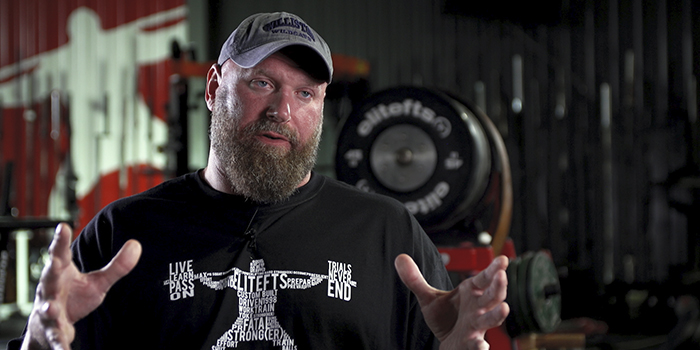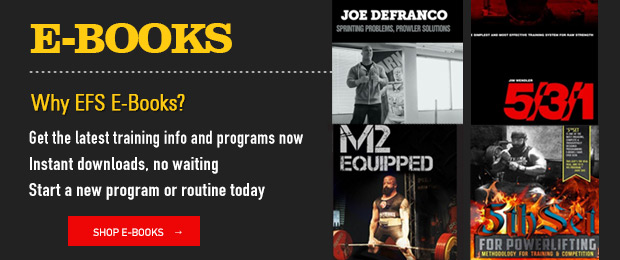
Over the last few months I've gotten a lot of emails from young coaches. Most mentioned that they had watched the podcasts we did over the summer. Obviously, this is cool and very much appreciated. But, the reason I'm banging away on the keyboard is because I realized that they're asking a lot of the same questions. I thought I might just post a few questions and give my opinion.
Q: What books should I read about training?
A: I've never read a book about training so I have no idea. My knowledge comes from experience and decades of writing my workouts in training logs (actual paper notebooks). I take a tremendous amount of notes on training. Each workout I take a team through I'll have notes for. At the end of each semester I go over them, make changes and write the next part of the workout.
I also try ideas on myself. I'm limited with what I can do, but I can at least get an idea. If I'm really interested in getting hard information I make my assistants do at least one cycle and get their feedback.
You had better be training, yourself. I've heard coaches say stuff like, "You don't have to be strong to be a good coach.", or something to that effect. I couldn't disagree more. You don't have to be the strongest, but you better be pretty strong and you better look the part. Nothing worse than a 160lb kid telling 300lb linemen how to get big. Laughable. Or, the fat slob yelling at athletes to run harder or eat better. Clowns!
As far as what I think is important for young coaches... Learn to communicate. The best book I've read that has helped me the most is Men are from Mars, Women are from Venus. I deal with male and female athletes. You can't talk to them the same.
I also read a lot about teaching - specifically how to control a classroom. After all, that's what we do as coaches. Run the class room. With this I've looked into public speaking techniques, as well. I thin it goes hand in hand.
Finally, figure out what style of training you believe in (Western Periodization, Block, Westside, 5/3/1, whatever. What resonates with you? Immerse yourself in that. It will most likely change over time, but dive into whatever you're into at the moment.
Finally, think about what we do when we train athletes.
- Power Lifting
- Olympic Lifting
- Bodybuilding
- Crossfit (if you do 3 and 4 set circuits I'll relate it to Crossfit)
- Rehab/Physical Therapy
- Yoga (stretching/mobility)
- Psychology (the individual)
- Sociology (the group)
I have looked into all of these different areas to try and improve myself as a coach.
Q: What training style is the best?
A: No idea. It's obvious that there are a lot of ways to train people. I think it's most important to go with the style that you gravitate towards the most (as mentioned above).
Figure out what you believe in. Not what the gurus tell you that you should believe in, but what you actually believe in. What do you think an athlete needs? Does your training style fill those needs? If it doesn't, can you adjust it? The answer to that is, yes. You just have to figure out how.
Don't start from scratch. Take an existing system, run it, learn it, understand it inside and out. Once you've mastered it, add your flair to it. In time it won't resemble anything - it'll be yours.
If some fancy new gimmick pops up don't abandon your beliefs. Learn about it. Figure out if you can add it in to your style. Remember, if you add, you MUST subtract something. You can just add. Whatever you're adding had better be superior to what you're subtracting. If it's not, don't add it. Don't abandon the new idea. Continue to figure out how you can incorporate it. This may take a while.
On a personal note, this made me think about my training style. Here are some of my influences:
- 5/3/1 (overall training philosophy)
- Block
- Westside
- Olympic lifting
- Bodybuilding
- Nebraska Football (Boyd Epley)
- CrossFit (it pains me to admit, but I have taken some great things from this cult)
- The Tier System
- Track & Field (specifically, speed drills)
- Good, old-fashioned common sense
- My many visits to physical therapists because of injuries
When I was a "young coach" for the second time, 8 years ago, I didn't have this many influences. I was very rooted in Powerlifting with an understanding of training athletes. The longer I've been in strength and conditioning the further and further I've gotten away from Powerlifting.
This process is never-ending. If your growth ends, get out of the business.
Q: How do I get into the business?
A: Be persistent. If you want it, you'll figure it out. There is a catch. You have to be decent. If you're a complete training buffoon you probably won't make it, but I'm still amazed at some of the people that have jobs. You probably need some sort of personality. And, you need THICK skin.
Just some thoughts that I had in my head while I was getting a lift in today. Hope it helps.









